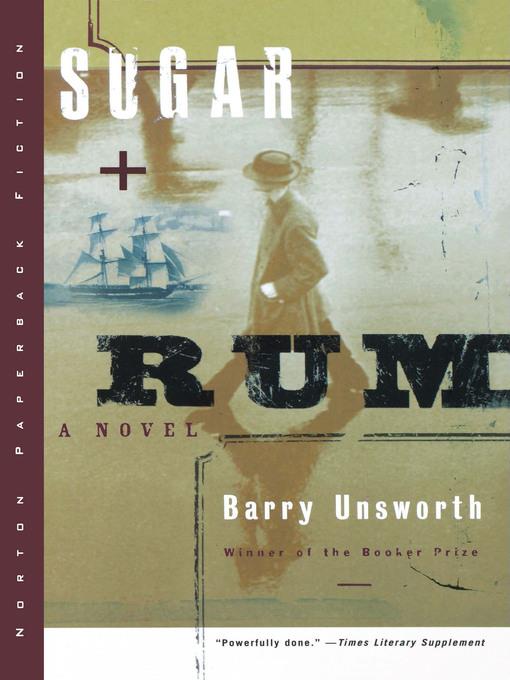
Sugar and Rum
A Novel
کتاب های مرتبط
- اطلاعات
- نقد و بررسی
- دیدگاه کاربران
نقد و بررسی

May 3, 1999
Signs of the powerful writing Unsworth later exhibited in his Booker Prize-winning Sacred Hunger distinguish this otherwise unfocused novel published in England in 1988 and released here for the first time. On one level a stinging diatribe against the "inhuman system" of Thatcher's conservative policies, the narrative also deals with such themes as unresolved guilt, Britain's lucrative participation in the slave trade, and the tools of a writer's craft. Suffering from writer's block, 63-year-old historical novelist Clive Benson is unable to proceed with a new work set in Liverpool during the late 1700s, the heyday of the Atlantic slave traders. Alone since his wife left him, Benson has sunk deep into depression and alcoholism; he is so emotionally dislocated that he talks compulsively to strangers on park benches. To make ends meet, he has set himself up as a literary consultant, but his clients are largely untalented and impervious to advice. Examples of their execrable jottings are the one light note in a text otherwise dominated by dark images: a suicide in the book's opening pages, Benson's memories of the Anzio campaign during WW II, and the death of his best friend in ambush, an event for which Benson holds himself responsible. When he runs across another veteran of that conflict, who in turn leads him to the erstwhile platoon commander, now a fat cat enjoying a rich lifestyle, a series of coincidences and violent acts sweep the novel to a fiery if not entirely credible conclusion. Though some of the scenes in Liverpool's grim slums have a cinematic urgency, analogies between the 18th-century slavers and contemporary Thatcherite opportunists are strained. The story ends on an ironic note: Benson's emancipation from anomie is accomplished with the aid of some of his writing clients--whom he calls "fictioneers"--an alliance of creative energy and social action that Unsworth seems to be calling for.

May 15, 1999
Clive Benson, a noted historical novelist, has moved from London to Liverpool to research a book on the slave trade. But the project is hopelessly stalled, and Benson, divorced and in his sixties, is beginning to feel that this drab industrial city may be the end of the line for him. To supplement dwindling royalties from earlier books, Benson hires himself out as a literary consultant, offering editorial advice to a morose group of would-be novelists. Unsworth is himself the author of several well-received historical novels, including the Booker Prize-winning Sacred Hunger (LJ 7/92), a novel about the Liverpool slave trade. Sugar and Rum is obviously partly autobiographical, and the first half of the book is a brilliant satire of the writing profession. In the second half, Unsworth attempts to use the slave trade as a metaphor for contemporary urban problems in Liverpool, with much less success. This interesting minor work by an important British novelist is noteworthy mainly as a supplement to Sacred Hunger. For larger fiction collections.--Edward B. St. John, Loyola Law Sch., Los Angeles
Copyright 1999 Library Journal, LLC Used with permission.

























دیدگاه کاربران